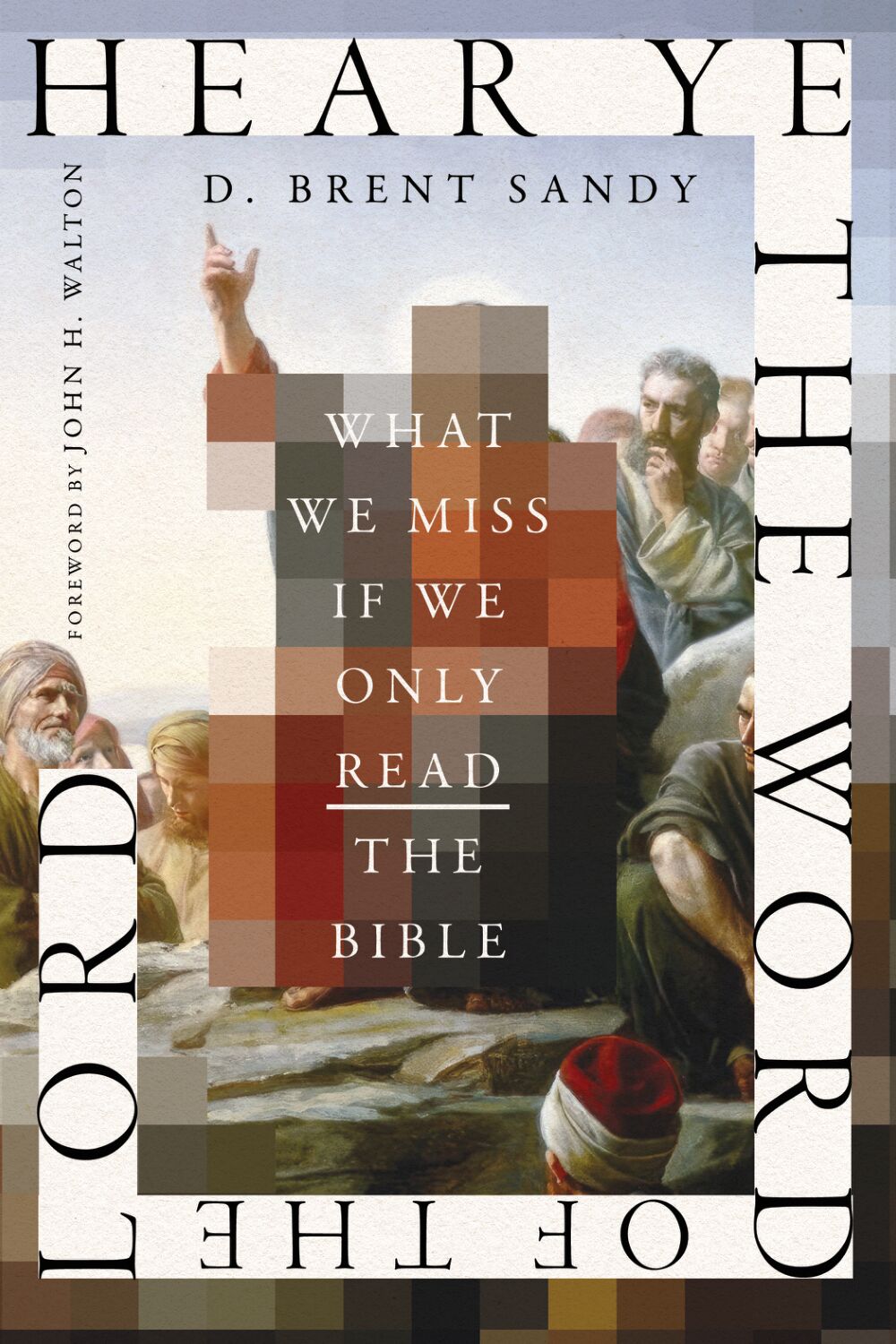A Conversation on Oral Culture & Scripture with D. Brent Sandy
In today's reading culture, it is easy to forget that we receive God's message far differently from how the original hearers would have heard it. In this interview, D. Brent Sandy (author of Hear Ye the Word of the Lord) explores how oral communication shaped biblical writers and ancient hearers, and provides constructive ways for modern readers to be better hearers and performers of Scripture.
Tell us about your passion for the project. What gaps were you seeing in the discussion about God's communication to us through the Scriptures?
D. Brent Sandy: Going back to my early twenties, I concluded—after majoring in Greek and diving deep into Hebrew—that the study of languages can take us only so far in interpreting Scripture. Our weaknesses are more in understanding the context and culture of the Bible. (For example, it's easy to misunderstand the concept of grace unless we recognize that grace in New Testament times entailed reciprocity. If you accepted a gift, it was incumbent to return the favor. See "Grace" in the 2nd edition of the Dictionary of Paul and His Letters.) Consequently, I turned my attention to all forms of backgrounds and foregrounds, seeking to develop as much cultural intelligence as possible to grasp ways ancient societies differ from our own.
How does this new book move beyond The Lost World of Scripture: Ancient Literary Culture and Biblical Authority, which you coauthored with John Walton?
DBS: Working on that earlier book heightened my awareness of the importance of oral culture. The primary concern at that point was reformulating discussions about the nature of Scripture, especially given its oral origins. The present book focuses instead on the hermeneutical implications of orality.
What most surprised you as you were writing this book? Was there anything that you discovered when writing that you didn't expect?
DBS: Having been schooled in the view that God's breathing was the method by which he inspired, I was amazed to find throughout Scripture that speaking was God's primary strategy. It meant people needed to hear carefully and remember faithfully what God and Jesus said so they could repeat it, giving more people the opportunity to hear the word of the Lord.
The pieces then began to fall into place. For centuries most people didn't have private copies of portions of Scripture they could read, and many were not literate enough anyway. So fundamentally, people heard. It was natural, then, for authors to shape what they wrote with hearers in mind.
But a lot has changed in the centuries since. We read and that generally happens independently—in contrast to their hearing—which was generally in community. As hearers, they tended to grasp Scripture more holistically, whereas in our reading, we're inclined to pay more attention to specific verses or words. The point is, hearing vs. reading Scripture can have a significant impact on understanding Scripture.
How would you hope that this book might shape contemporary preaching and teaching of God's Word?
DBS: The starting point is the development of an oral hermeneutic. If our assumption continues to be that the authority of Scripture resides only in the written words, which we can read very closely, then we feel justified in submitting the text to ever deeper levels of exegesis.
But if the meaning of Scripture for us depends, at least to some extent, on what it meant for people who initially heard the word of the Lord, then we need to adjust our expectations and methods for interpreting the truths that God revealed orally and were heard aurally.
When we move the needle closer to oral forms of divine revelation, there are significant consequences, whether we're writing commentaries, teaching, or preaching. Hopefully we can improve at least one thing, and that is how we present Scripture in our churches and group settings so that today's hearers can be impacted similarly to how the initial hearers were.
What areas related to this book require further exploration and discussion?
DBS: Ancient oral culture in relation to Scripture is a wide-open field for future research. The topic has received very little attention in commentaries and books on hermeneutics and homiletics, particularly from a confessional perspective. As a result, divine revelation continues to be studied primarily as a literary artifact, when originally it was an oral phenomenon.
Some areas where additional research is needed include how people in oral cultures think and communicate differently; how brains process information differently when heard vs. read; how we should interpret literature differently, since it was designed to be heard; and how oral tradition shaped the preservation of oral revelation in written forms.
Join IVP Academic's email list to get more content like this straight to your inbox!
About the Author
This interview originally appeared in the IVP Academic catalog. Sign up to receive the catalog to be the first to discover new academic books and author interviews.





